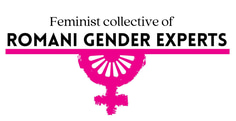A Bold Call for Intersectional Justice: The Feminist Collective of Romani Gender Experts and the Informal Network of Romani Women in Hungary, on the Hungarian EU Presidency's Gender Equality Initiatives
The Feminist Collective of Romani Gender Experts is a transnational network advocating for gender equality and intersectional justice for Romani women. In collaboration with the Informal Network of Romani Women in Hungary, we address systemic inequalities and call for comprehensive reforms to ensure genuine inclusion and equal opportunities for Romani women in the Hungarian EU Presidency’s gender equality initiatives.
STATEMENT
7/1/20243 min read
Introduction
In a world striving for equality, the voices of the marginalized often get drowned out. This is where the Feminist Collective of Romani Gender Experts steps in. As a transnational network, we are dedicated to advocating for gender equality and intersectional justice, particularly for Romani women. Our collective was born out of the necessity to amplify the voices that have been historically overlooked and marginalized in academia, European institutions, and civil society. With our deep-rooted commitment and expertise, we now present our perspective on the Hungarian EU Presidency’s gender equality priorities, emphasizing the pressing need for systemic change and a genuinely intersectional approach.
The Informal Network of Romani Women, established in January 2021, shares this mission. It unites purposeful and active Romani women from diverse regions of Hungary, spanning various age groups, social situations, and professional backgrounds. Their collective aim is to ensure that Romani women in Hungary enjoy the same opportunities and rights as their non-Romani or male counterparts, voicing their unique perspectives on the issues that affect them most.
Current Situation
The Hungarian EU Presidency has outlined several initiatives aimed at promoting gender equality and combating various forms of violence and discrimination. However, there are significant gaps, especially concerning the specific challenges faced by Romani and other marginalized women. Without a focus on intersectionality and systemic issues, current policies risk perpetuating existing inequalities.
Key Observations
Lack of Intersectional Focus
Current initiatives fail to address the intricate interplay of gender, ethnicity, and socio-economic status. Romani women, alongside other marginalized groups (including LBTQ individuals, persons with disabilities, sex workers, and homeless women), face compounded discrimination. Policies must recognize and tackle these intersecting identities to be truly effective.
Insufficient Emphasis on Systemic Change
While efforts to promote gender equality and combat violence are crucial, they fall short in addressing systemic inequalities. True change requires tackling the roots of inequality, such as institutional racism, sexism, and class-based discrimination, through comprehensive reforms in legal, economic, and social structures.
Tokenism vs. Genuine Inclusion
All too often, women are included in consultations and initiatives as a token gesture rather than as genuine stakeholders. Real inclusion involves providing platforms for marginalized women to assume leadership roles and influence decision-making processes, ensuring that policies reflect and respond to their needs.
Our Recommendations
Reframe Gender as More Than a Political Ideology
The Hungarian Presidency must adopt the European Union’s language and cease demonizing the concept of "gender." Accurate and inclusive language is crucial for addressing issues related to gender and intersectional inequalities effectively.
Embrace an Intersectional Approach
An intersectional approach in all gender equality initiatives is essential. This means recognizing and addressing the unique challenges faced by Romani women and other marginalized groups, ensuring that policies are tailored to meet these needs.
Drive Systemic Change
Gender equality efforts must go hand in hand with initiatives aimed at systemic change. This includes:
Reforming legal frameworks to eliminate discriminatory practices.
Ensuring equal access to education, healthcare, and employment for Romani women.
Implementing robust anti-discrimination measures across all sectors.
Valuing and compensating child-rearing and household work both socially and financially.
Combat Health Discrimination Vigorously
Health is a fundamental human right, yet Romani women face significant health discrimination, particularly in sexual and reproductive health, with forced sterilization still prevalent in the EU. It is crucial to:
Establish and enforce appropriate legal frameworks.
Hold offending medical professionals accountable.
Ensure compensation and support for victims of forced sterilization.
Guarantee access to quality, free professional assistance and therapeutic services following health discrimination.
Ensure Genuine Inclusion
Romani women must be genuinely involved in all decision-making processes. This can be achieved by:
Creating platforms where Romani women can share their expertise and experiences.
Offering leadership and capacity-building opportunities within EU structures.
Collaborating with Romani feminist and civil organizations to ensure that their voices are heard and considered.
Providing real decision-making roles, not just advisory positions, for Romani women in planning, implementation, and monitoring processes.
Strengthen Monitoring and Accountability
Effective initiatives require strong monitoring and accountability mechanisms. This includes:
Regularly reviewing and evaluating gender equality policies from the perspective of Romani women.
Establishing clear milestones and indicators to measure progress.
Holding institutions accountable for their commitments to promoting gender equality and intersectionality.
Conclusion
The Feminist Collective of Romani Gender Experts and the Informal Network of Romani Women urge the Hungarian EU Presidency to take bold, decisive steps to address the specific challenges faced by Romani and other marginalized women. By adopting an intersectional approach, promoting systemic changes, ensuring genuine inclusion, and strengthening monitoring and accountability, significant progress towards true gender equality can be achieved. Only through comprehensive and inclusive measures can we create a just and equal society for all.
Contact Information:
Email: rnoihalozat@gmail.com
Click here to download our Public Statement on the Hungarian EU Presidency's Activities Concerning Gender Equality.




